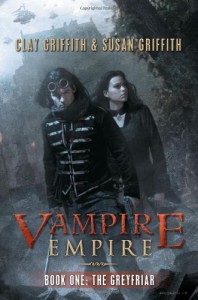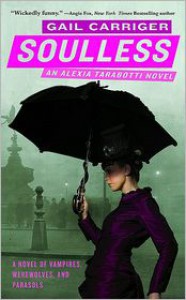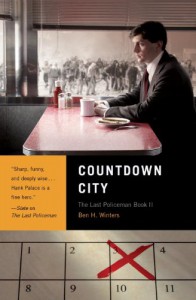 Oh boy, I've always adored horror novels that incorporate paranormal elements or a touch of the fantastical, and considering my enjoyment for such types of books written by Stephen King, it's a wonder to me why I waited so long to check out something by his son, an acclaimed author in his own right.
Oh boy, I've always adored horror novels that incorporate paranormal elements or a touch of the fantastical, and considering my enjoyment for such types of books written by Stephen King, it's a wonder to me why I waited so long to check out something by his son, an acclaimed author in his own right. Why I thought this was a great book, reason the first: it succeeded in creeping me out. Honestly, why else would I pick up a horror novel? I mentioned before how much I appreciate having fantasy in my horror, because rather than dulling my fear by being "less realistic", a story with supernatural aspect actually accentuates it. In NOS4A2, Joe Hill manages to balance the "world of reality" and the "world of imagination" perfectly, sometimes blurring the lines.
In this way, a tale about a predator named Charles Manx who snatches children from his vintage Rolls-Royce becomes even more frightening when you think about how in this world of mystical powers, secret places and hidden roads, anything can happen. Manx's powers are even more disturbing, when you find out that his Wraith car has the ability to transport its riders beyond the veil to a place called Christmasland, which at first sounds like a wonderful place, except every moment a child spends there they lose more and more of themselves. Knowing that this villain uses his young victims' love of Christmas against them makes this book even more chilling.
Which brings me to another reason why I found this book so effectively unsettling: the fact that this is, in a way, a story about the loss of childhood innocence. Like Manx, our protagonist Victoria McQueen also has a power, which she discovers at 8 years old, when a rickety old covered bridge appears whenever she rides her bike, always leading her to exactly what she's looking for. Years later and seeking trouble as an angsty teenager, the bridge leads Vic to her first traumatic encounter with Charles Manx.
The events in Vic's past will remain with her forever, but all powers also have their costs. As she grows into adulthood, her memories and power change her life, her personality, her relationships with the people close to her. Her struggles with these changes are a big part of why I felt drawn to her character, because it's easy to sympathize with her desire to be a good person and do the right thing, even if it means facing her greatest fears and returning to the worst time of her life.
Joe Hill builds Vic up to be this fully-realized person, so that her fears became my fears, what she cared about became what I cared about, and what she wanted became what I wanted, too. Indeed, it's not just the thrills and suspense that got me into this novel, but also the factors involving Vic's emotions and relationships with her parents, Lou, and her son.
It takes a very good storyteller to frighten their reader but to also move them, and in this way Joe Hill's writing reminds me a lot of Stephen King's work. This is one seriously talented family. While NOS4A2 may be the first book I've ever read by Joe Hill, it certainly won't be the last.
More reviews at The BiblioSanctum
















